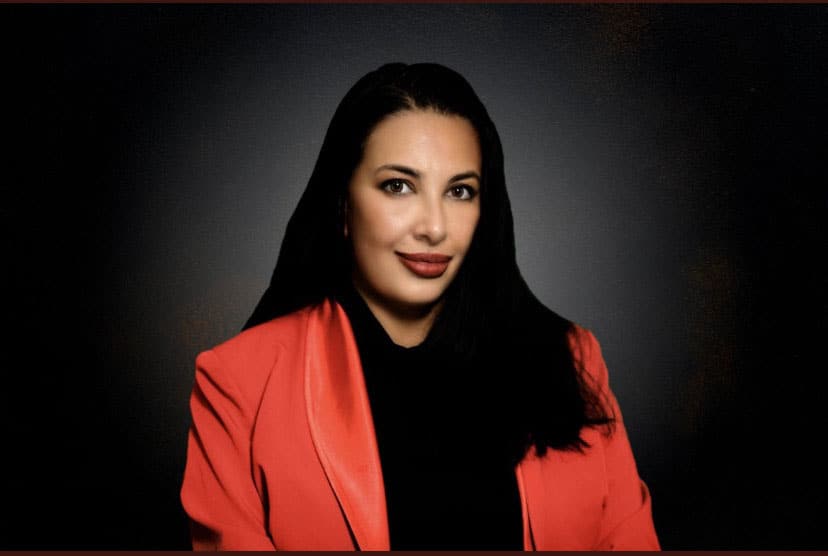Court Says Trump Administration Broke the Law to Keep Her in Office
A federal judge ruled Tuesday that Sigal Chattah isn’t legally serving as Nevada’s top federal prosecutor. He kicked her off supervising four criminal cases. The judge said the Trump administration broke the law trying to keep her in power.
U.S. District Judge David Campbell said Chattah’s appointment doesn’t follow federal rules, writing:
“Given the Court’s conclusion that Ms. Chattah is not validly serving as Acting U.S. Attorney, her involvement in these cases would be unlawful.”
How They Tried to Bend the Rules
Here’s what happened: President Trump appointed Chattah as interim U.S. Attorney back in March. That job comes with a 120-day limit. It’s like a temporary work permit that expires. When July rolled around and her time was almost up, the Trump administration got creative.
They shifted her to a different job title that would let her keep running the office. They made her “first assistant U.S. Attorney” for one day. Then they immediately made her “acting U.S. Attorney.” This would let her stay in charge without Senate confirmation.
The judge said no. That’s not how the law works.
Campbell wrote:
“The Court cannot accept the government’s assertion that the Attorney General has power to designate anyone she chooses as first assistant and have that person become the acting U.S. Attorney. The Federal Vacancies Reform Act was enacted to put an end to precisely such Executive actions.”
The Timing Gets Worse
The court ruling came the same day Reuters published a report raising serious ethics questions about Chattah.
NN&V covered the report, here: Scandal Brewing: Nevada’s Top Prosecutor Faces Ethics Questions Over Voter Fraud Investigation
The report alleges that Chattah asked the FBI to investigate debunked Republican claims about voter fraud in the 2020 election. According to a government document, she hopes the probe will influence congressional races and help Republicans.
The report said Chattah met with federal agents in late July and handed them a thumb drive with data from Nevada’s Republican Party about alleged illegal voting in 2020.
Here’s the ethics problem. Until April, Chattah worked as a private defense lawyer. She represented one of the alternate electors charged with in connection with the 2020 election. Now she wants the Justice Department to investigate and potentially exonerate her former client.
Richard Painter, who served as chief ethics officer under Republican President George W. Bush, said the ethics rule is clear. When someone joins the U.S. Attorney’s Office:
“she has to recuse from any particular party matter in which she represented a client.”
What The Other Side Says
Federal prosecutors argued that Chattah is serving legally. They said the personnel moves followed the law.
David Chesnoff, a prominent Las Vegas defense attorney, said the ruling:
“potentially disqualifies the most accessible United States attorney that I’ve seen in this district in my 40-plus years of practice.”
The government will likely appeal. Greg Brower, a former Nevada U.S. attorney, said the decision will stand :
“until and unless the Ninth Circuit Court of Appeals reverses this decision.”
He added that this creates:
“practical problems and a certain degree of chaos within the office.”
This Keeps Happening
Chattah isn’t alone. The Trump administration has run into similar problems with its pick for U.S. attorney in New Jersey, Alina Habba. A judge ruled in August that she had been illegally serving as U.S. attorney after a similar extension of her role.
When multiple federal judges keep ruling that these appointments are unlawful, there’s a pattern worth noticing.
What Happens Next
The judge gave three options for moving forward:
- The president can appoint a temporary acting U.S. attorney.
- Federal judges in Nevada can select their own interim prosecutor.
- Or the Justice Department can find another proper way to fill the position.
Right now, lawyers working under Chattah must tell the court within seven days that she’s not directing their work on these cases. The judge didn’t throw out the criminal cases entirely. He just said Chattah can’t be involved.
Campbell noted that the president has not nominated anyone to serve as Nevada’s permanent U.S. attorney.
Why Process Matters
This case shows why following the rules matters more than getting your preferred outcome. When we let any administration bypass Congress and the Senate, we’re weakening the checks and balances that protect us.
Today it might be someone you support. Tomorrow it could be someone you don’t. The rules exist to protect everyone from government overreach.
Limited government means following the law even when it’s inconvenient. It means respecting the separation of powers. It means the Senate’s role in confirming important officials isn’t just a suggestion you can work around with clever personnel moves.
What You Can Do
Push for appointees who go through proper channels, regardless of which party nominated them.
Pay attention to these court cases. When judges rule on separation of powers issues, they’re defending principles that matter long after any one administration is gone.
The Constitution isn’t a set of guidelines. It’s the rulebook. And conservatives should be the first ones insisting everyone plays by it.
The opinions expressed by contributors are their own and do not necessarily represent the views of Nevada News & Views. This article was written with the assistance of AI. Please verify information and consult additional sources as needed.



